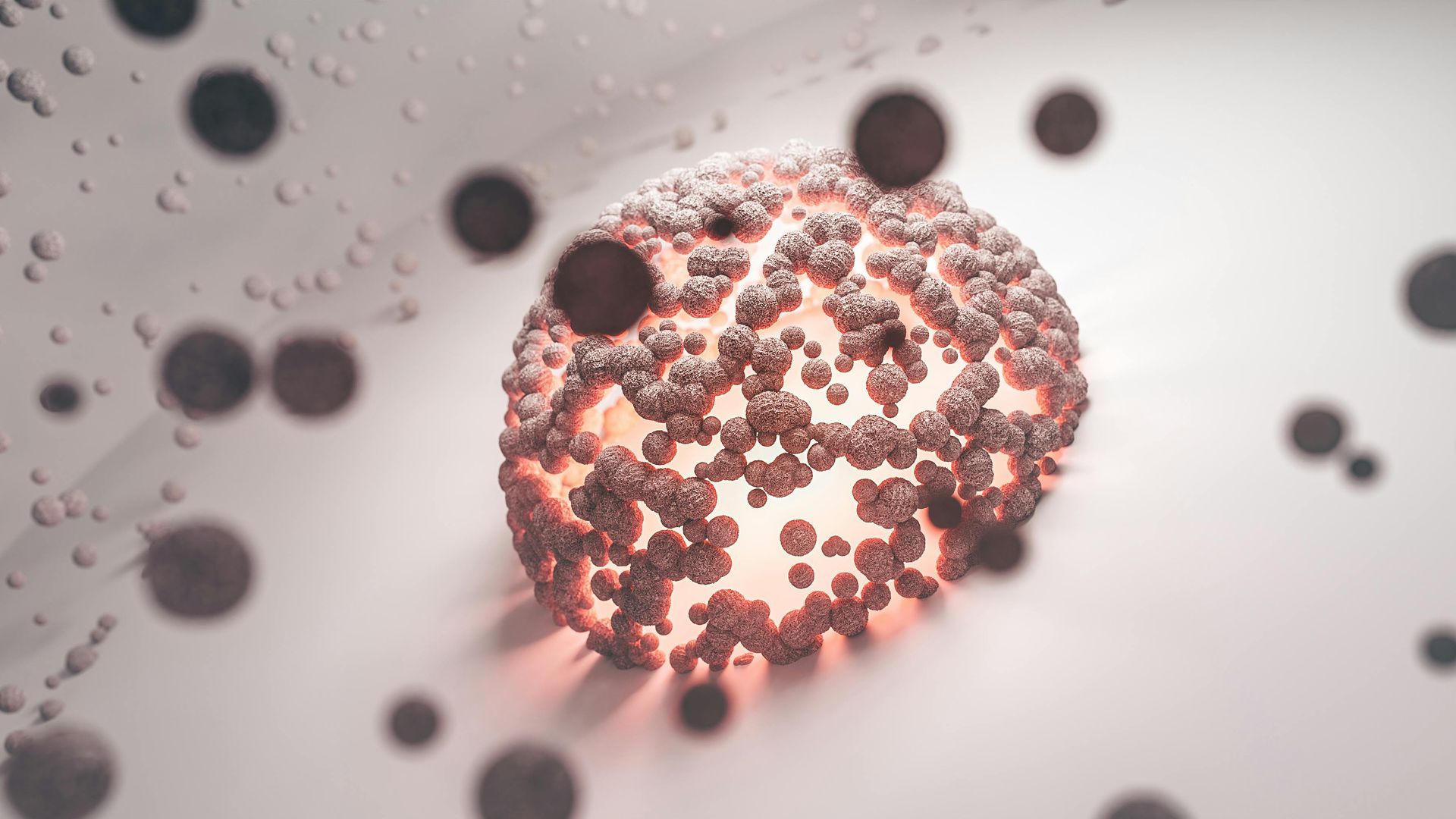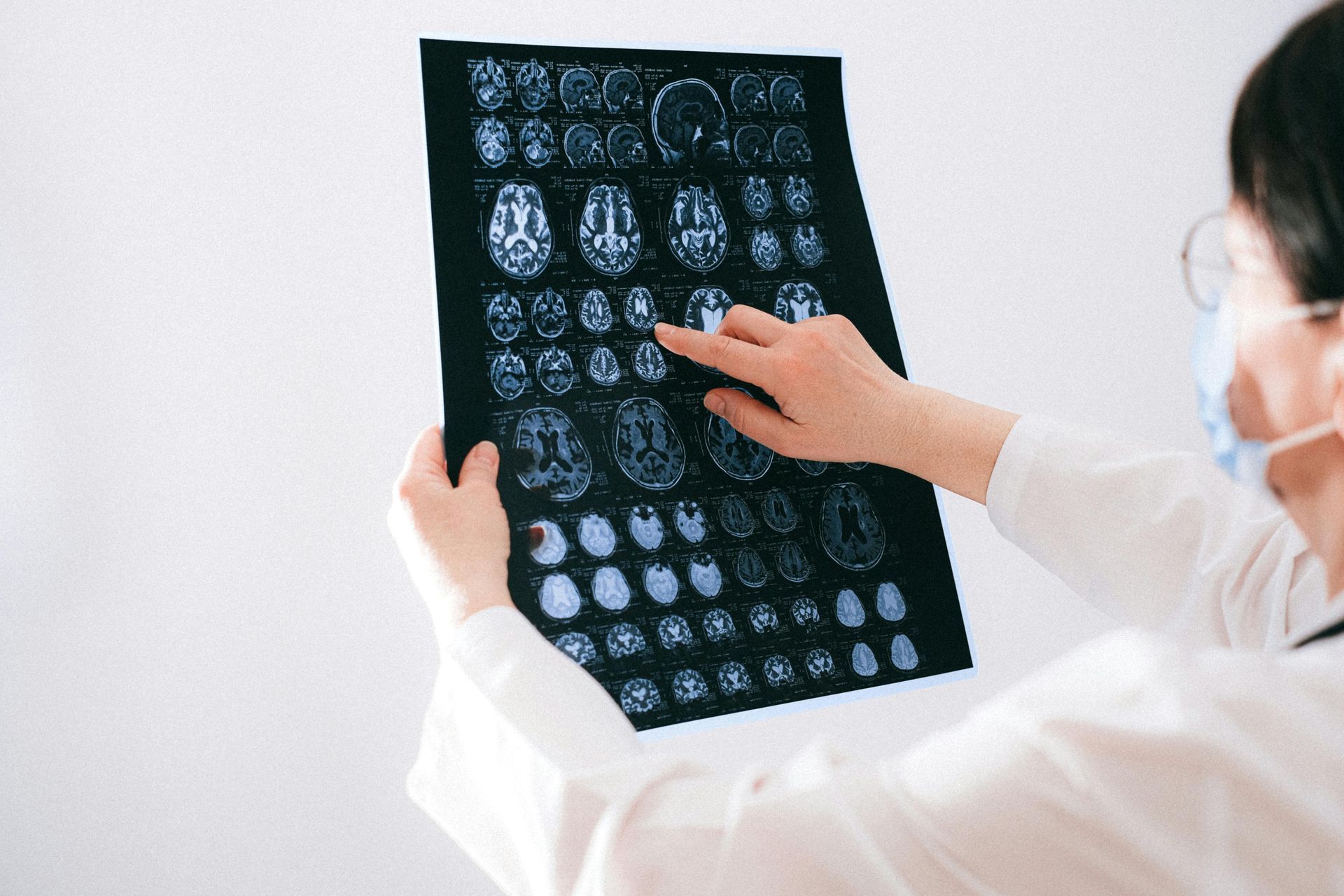Dopamine
The Brain’s Motivation Molecule—and Its Whole-Body Impact
Dopamine is one of the most powerful and versatile chemicals in the human body. Often called the “motivation molecule,” dopamine plays a crucial role in how we experience pleasure, drive, reward, and focus. But its influence extends far beyond the brain. Dopamine also connects the nervous system with the gut, hormones, immunity, and even cardiovascular and endocrine health.
When dopamine is out of balance—whether too low or improperly regulated—it can affect mood, memory, digestion, movement, sleep, and hormone production. Understanding dopamine's role is key to unlocking deeper solutions for issues like depression, ADHD, Parkinson’s disease, and even gut disorders.
What Is Dopamine?
Dopamine is a type of neurotransmitter—a chemical messenger that helps transmit signals between nerve cells. It is produced primarily in the brain, especially in regions like the substantia nigra and ventral tegmental area. Smaller amounts are also made in the adrenal glands and gut.
Dopamine is made from the amino acid tyrosine through a series of steps involving essential cofactors like vitamin B6, copper, iron, and folate. The enzyme tyrosine hydroxylase converts tyrosine into L-DOPA, which is then converted into dopamine. From there, dopamine can also become norepinephrine or epinephrine, especially in the adrenal system.
What Does Dopamine Do?
In the brain, dopamine helps regulate:
- Motivation and goal-directed behavior
- Pleasure and reward
- Attention and focus
- Emotional regulation
- Sleep-wake cycles
- Motor control and coordination
But dopamine also influences the body, including:
- Gut motility and digestion
- Hormone release (e.g., prolactin, testosterone, estrogen)
- Immune regulation
- Circulation and blood pressure
The Gut–Dopamine Connection
Surprisingly, a large portion of the body’s dopamine is produced and regulated in the gut. The gastrointestinal tract contains dopamine receptors and even gut bacteria that influence dopamine signaling. This gut-brain axis helps explain why people with dopamine imbalance often experience digestive symptoms such as:
- Constipation or slow transit
- Irritable bowel syndrome (IBS)
- Bloating and gas
- Nausea or poor appetite
In conditions like Parkinson’s disease—where brain dopamine is depleted—constipation often appears years before motor symptoms, highlighting this gut connection. Additionally, gut inflammation or dysbiosis may affect the enzymes and nutrients needed to synthesize dopamine, creating a vicious cycle of mood and digestive dysfunction.
Dopamine and Hormones
Dopamine closely regulates several hormones:
- It inhibits prolactin, which is why low dopamine may lead to elevated prolactin levels (causing low libido, irregular periods, or breast tenderness).
- It affects testosterone and estrogen levels indirectly through its interaction with GnRH and LH/FSH signaling in the hypothalamus.
- It supports healthy thyroid function, adrenal resilience, and menstrual cycle regularity by stabilizing neuroendocrine feedback loops.
In women, estrogen increases dopamine sensitivity, which is why some feel more mentally sharp or motivated around ovulation. However, in estrogen dominance or perimenopause, this relationship may become dysregulated, contributing to anxiety, insomnia, or emotional reactivity.
What Happens When Dopamine Is Low?
Low dopamine levels or poor dopamine signaling can manifest as a range of mental, physical, and emotional symptoms. Common signs include:
- Lack of motivation or “flat” mood
- Depression or emotional numbness
- Low energy and fatigue
- Difficulty focusing or making decisions
- Memory problems
- Slow thinking or “brain fog”
- Digestive sluggishness
- Craving sugar, caffeine, or stimulants
- Low libido
- Poor stress tolerance
In more severe cases, dopamine deficiency contributes to:
- Parkinson’s disease (progressive motor dysfunction)
- ADHD (impaired attention and impulsivity)
- Anhedonia (loss of pleasure or reward)
- Restless leg syndrome
- Addictive behaviors
Can Dopamine Be Too High?
Yes, but this is less common and usually occurs in specific conditions like schizophrenia or with stimulant overuse (cocaine, amphetamines). Excess dopamine can lead to paranoia, manic behavior, aggression, insomnia, or disorganized thought.
Balance—not excess—is the key to optimal dopamine function.
How to Diagnose Dopamine Deficiency
There is no single perfect test for dopamine deficiency, but several tools can help:
- Symptom assessment using clinical questionnaires
- Urinary neurotransmitter testing (e.g., dopamine, HVA—homovanillic acid)
- Blood tests for cofactors: B6, B12, folate, iron, copper, magnesium
- Organic acids test (OAT) to assess dopamine metabolites and coenzyme function
- Prolactin levels, which may be elevated when dopamine is low
- Genetic testing for COMT, MAO, and dopamine receptor genes (e.g., DRD2, DRD4) to identify metabolism issues
In neurological disorders like Parkinson’s, brain imaging (e.g., DaTscan) may assess dopamine transporter function.
Treatment: How to Improve Dopamine Naturally
Nutrition First
Dopamine is made from tyrosine and requires nutrients like:
- Vitamin B6, B12, folate
- Iron, magnesium, copper
- Omega-3 fatty acids
- Antioxidants (vitamin C, E, glutathione)
Amino acid precursors like tyrosine or L-DOPA from Mucuna pruriens may help boost levels in people with low dopamine, especially under practitioner guidance.
Lifestyle and Mind-Body Habits
- Exercise (especially cardio or weight training) significantly boosts dopamine and receptor sensitivity.
- Sunlight exposure helps regulate dopamine through circadian rhythm.
- Meditation, deep sleep, cold exposure, and music may enhance natural dopamine release.
Targeted Supplements
- Tyrosine or phenylalanine (amino acid precursors)
- Mucuna pruriens (natural source of L-DOPA)
- Rhodiola rosea (adaptogen that supports dopamine under stress)
- SAMe, magnesium threonate, B-complex vitamins
- L-theanine and GABA (to balance excitatory effects)
Pharmaceutical Options
In diagnosed disorders, medications that enhance dopamine may be used:
- Levodopa/carbidopa for Parkinson’s
- Stimulants (e.g., Adderall, Ritalin) for ADHD
- Bupropion (Wellbutrin), a dopamine/norepinephrine antidepressant
- MAO inhibitors or COMT inhibitors, which prevent dopamine breakdown
These treatments should be personalized and monitored due to risks of tolerance, overstimulation, or imbalance with other neurotransmitters.
Dopamine and Mental Health
Low dopamine is closely linked with:
- Depression, especially types marked by low motivation or energy
- ADHD
- Anxiety (especially when serotonin is also low)
- Apathy and emotional flatness
- Addictive behaviors (alcohol, sugar, gambling, gaming, substances)
- Cognitive decline or early dementia
Supporting dopamine naturally—by addressing nutrition, gut health, sleep, and neuroinflammation—can improve mood, focus, and quality of life, often without medications.
Final Thoughts
Dopamine is essential for mental clarity, emotional balance, digestive rhythm, and hormonal health. It connects the brain, gut, and endocrine system in ways that make it a critical focus for anyone struggling with fatigue, low motivation, depression, or cognitive issues.
Balancing dopamine doesn’t require a quick fix—it requires a whole-body approach: restoring nutrients, supporting gut and liver function, managing stress, and making lifestyle choices that nourish brain chemistry. With the right tools and guidance, dopamine balance is absolutely possible.
If you suspect dopamine-related symptoms, seek care from a practitioner who understands the full neuroendocrine picture—because your brain chemistry is never isolated from your body.


